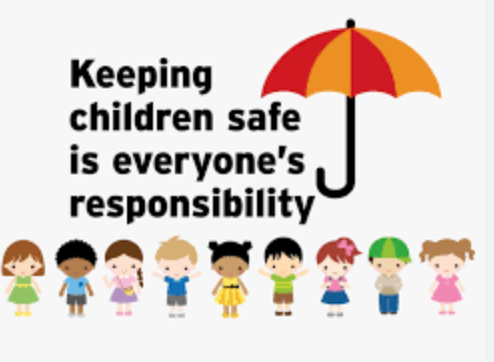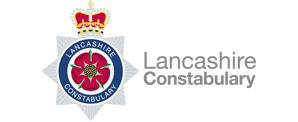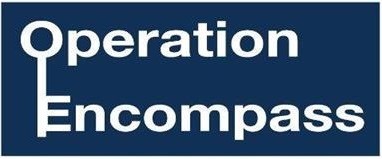Safeguarding Our Children
Guide us O God to be the best we can be; in every thought, in every word and every deed

We take the safeguarding of our pupils very seriously here at St Mary and St Andrew's Primary School.
Supported by our Safeguarding Governor, Mrs Audrey Swann, Mrs Sarah Roach, the Headteacher, is the Senior Designated Safeguarding Lead. Mrs Helen Bisby is the deputy Designated Safeguarding Lead. Our primary consideration is that of the child and their wellbeing, be that physically, mentally or emotionally. All incidents, comments and allegations will be fully investigated and, where necessary, referred to the appropriate local authority team via the MASH (multi agency safeguarding hub) and LCSC (Lancashire Children's Social Care).
Our Safeguarding policy and procedures, which can be found in the policies section of our website, comply with:
- Safeguarding Children and Safer Recruitment in Education
- Keeping Children Safe in Education 2023 https://assets.publishing.service.gov.uk/media/64f0a68ea78c5f000dc6f3b2/Keeping_children_safe_in_education_2023.pdf
- Working Together to Safeguard Children https://www.gov.uk/government/consultations/working-together-to-safeguard-children-changes-to-statutory-guidance/guide-for-children-and-young-people-working-together-to-safeguard-children
- Children's Safeguarding Assurance Partnership https://www.safeguardingpartnership.org.uk/
A referral can be made by anyone, including members of the public if they have concerns regarding the safety of a child. Within the school, a referral will be made by one of the Designated Safeguarding Leads. If you have any concerns regarding the wellbeing of a child, please call Lancashire Children's Social Care - you can do this anonymously if you wish. Please see details below.
We proudly declare that we are a trauma informed practice school. We build on this approach to safeguard the wellbeing of all our children:
Trauma-informed practice is an approach to health and care interventions which is grounded in the understanding that trauma exposure can impact an individual’s neurological, biological, psychological and social development.
Trauma-informed practice aims to increase our awareness of how trauma can negatively impact on individuals and communities, and their ability to feel safe or develop trusting relationships with health and care services and their staff.
It aims to improve the accessibility and quality of services by creating culturally sensitive, safe services that people trust and want to use. It seeks to prepare practitioners to work in collaboration and partnership with people and empower them to make choices about their health and wellbeing.
Trauma-informed practice acknowledges the need to see beyond an individual’s presenting behaviours and to ask, ‘What does this person need?’ rather than ‘What is wrong with this person?’.
We deeply care about the needs of our children.

There are 6 principles of trauma-informed practice: safety, trust, choice, collaboration, empowerment and cultural consideration.
Safety
The physical, psychological and emotional safety of service users and staff is prioritised, by:
- people knowing they are safe or asking what they need to feel safe
- there being reasonable freedom from threat or harm
- attempting to prevent re-traumatisation
- putting policies, practices and safeguarding arrangements in place
Trustworthiness
Transparency exists in an organisation’s policies and procedures, with the objective of building trust among staff, service users and the wider community, by:
- the organisation and staff explaining what they are doing and why
- the organisation and staff doing what they say they will do
- expectations being made clear and the organisation and staff not overpromising
Choice
Service users are supported in shared decision-making, choice and goal setting to determine the plan of action they need to heal and move forward, by:
- ensuring service users and staff have a voice in the decision-making process of the organisation and its services
- listening to the needs and wishes of service users and staff
- explaining choices clearly and transparently
- acknowledging that people who have experienced or are experiencing trauma may feel a lack of safety or control over the course of their life which can cause difficulties in developing trusting relationships
Collaboration
The value of staff and service user experience is recognised in overcoming challenges and improving the system as a whole, by:
- using formal and informal peer support and mutual self-help
- the organisation asking service users and staff what they need and collaboratively considering how these needs can be met
- focussing on working alongside and actively involving service users in the delivery of services
Empowerment
Efforts are made to share power and give service users and staff a strong voice in decision-making, at both individual and organisational level, by:
- validating feelings and concerns of staff and service users
- listening to what a person wants and needs
- supporting people to make decisions and take action
- acknowledging that people who have experienced or are experiencing trauma may feel powerless to control what happens to them, isolated by their experiences and have feelings of low self-worth
Cultural consideration
Move past cultural stereotypes and biases based on, for example, gender, sexual orientation, age, religion, disability, geography, race or ethnicity by:
- offering access to gender responsive services
- leveraging the healing value of traditional cultural connections
- incorporating policies, protocols and processes that are responsive to the needs of individuals served
Early Help
Early help, also known as early intervention, is support given to a family when a problem first emerges. It can be provided at any stage in a child or young person’s life.
Early help services can be delivered to parents, children or whole families, but their main focus is to improve outcomes for children. For example, services may help parents who are living in challenging circumstances provide a safe and loving environment for their child. Or, if a child is displaying risk-taking behaviour, early help practitioners might work with the child and their parents to find out the reasons for the child’s behaviour and put strategies in place to help keep them safe. Providing timely support is vital. Addressing a child or family’s needs early on can reduce risk factors and increase protective factors in a child’s life (Early Intervention Foundation (EIF), 2021).
If you feel you would like some help or support via Early Help then please contact Mrs Roach at school.
More information is available here: https://www.lancashire.gov.uk/practitioners/supporting-children-and-families/early-help-assessment/
Concerned about a Child?
Call 0300 123 6720 or out of hours 0300 123 6722.
If you think a child is in immediate danger – don't delay call the police on 999.
The NSPCC website has advice about the signs, symptoms and effects of child abuse and neglect.
Adverse childhood experiences
Please watch this video to help understand the impact negative experiences in childhood can have in adulthood. Our staff are trained in identifying indicators of adverse childhood experiences and follow strict guidelines of how to report them.
Operation Encompass


In conjunction with Lancashire Police, St Mary & St Andrew's Catholic Primary School is involved in a national initiative called, “Operation Encompass”. The purpose of Operation Encompass is to safeguard and support children and young people who have been involved in, heard or witnessed a domestic abuse incident. The reporting Police Officer will contact school before 9am on the next school day to ensure that the child/children is warmly welcomed into school, given a safe space to talk - if needed - and that communication between the family and school is strong.
Following an incident, children will often arrive at school distressed, upset, worried and unprepared. Operation Encompass aims to ensure that appropriate school staff are made aware early enough to help and support children and young people in a way that means they feel safe and included.
This is a valuable initiative that means we can help and support students and their families within our school when they need us most.
You can find out more information by visiting the Operation Encompass website (click the button below) or by contacting Mrs Roach or Mrs Bisby at school.

